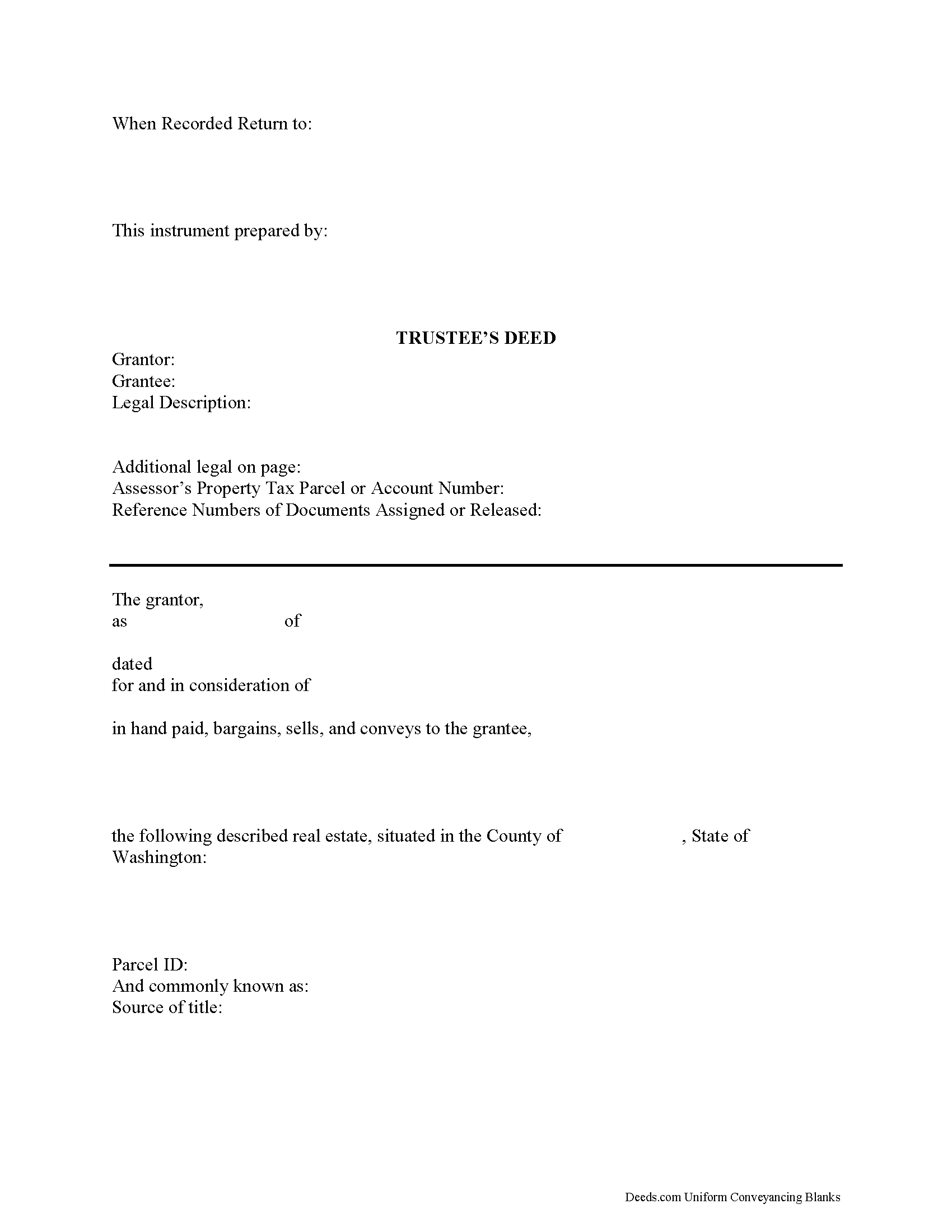Download Washington Trustee Deed Legal Forms

Washington Trustee Deed Overview

Washington State Trustee's Deed to Convey Living Trust Property
Transferring real property from a living trust requires a trustee's deed, not to be confused with the trustee's deed following foreclosure of a deed of trust. The trustee's deed to convey living trust real estate in Washington State is a bargain and sale deed (a statutory form in Washington under RCW 64.04.040) that has been descriptively named for the executing party.
In a living trust, a settlor transfers assets to another person (the trustee) for the benefit of someone else (the beneficiary). In many living trust arrangements, these roles may be performed by the same person, so long as the sole trustee is not also the sole beneficiary. The living trust is an estate planning tool established by the settlor (by the execution of a trust instrument and the funding of the trust), who receives the benefit of the trust during his lifetime. The settlor administers the trust during his lifetime as trustee, though not always, and typically designates a successor trustee to replace him as trustee in the event of death or incapacitation.
Real property is transferred into trust by a deed from the settlor, granting the property to the trust in the name of the trustee. Because the trustee now holds legal title to the property, the trustee must execute a deed to remove property from the trust.
The Washington trustee's deed (bargain and sale deed) transfers fee simple interest to the grantee with a limited warranty and contains the express covenants most typically associated with a special warranty deed, namely that "the grantor was seized of an indefeasible estate in fee simple, free from encumbrances, done or suffered from the grantor" except as otherwise limited by the restrictions enumerated on the deed. The grantor also promises that the grantee will have "quiet enjoyment against the grantor, his or her heirs and assigns" (RCW 64.04.040). This type of narrower warranty, limited to the duration of the grantor's title, is commonly used in cases where a trustee is selling property to a third party; due to the nature of a trust, the trustee may have no knowledge of the title prior to his trusteeship, and cannot offer a broader warranty.
The trustee's deed should comply with the statutory form of a bargain and sale deed under RCW 64.04.040 and requires, in addition to the granting trustee's name, recital of the name and date the trust as part of the grantor information. The form should conform to first-page and general recording requirements for documents affecting title to real property in the State of Washington. A third party may request a trustee's certificate under RCW 11.98.075, confirming the trust's existence and the trustee's authority and powers.
Consult a lawyer with questions regarding living trusts and conveyances of real property from living trusts in Washington, as each situation is unique.
(Washington TD Package includes form, guidelines, and completed example)